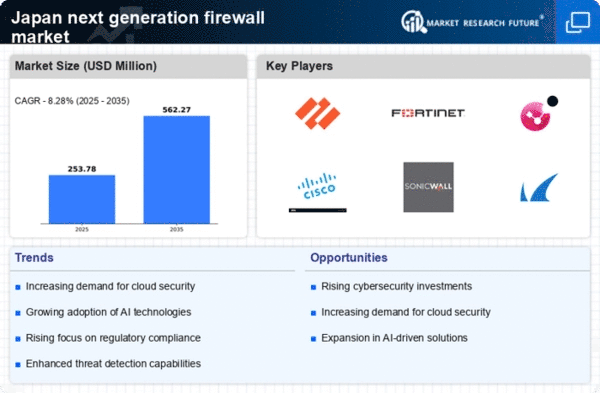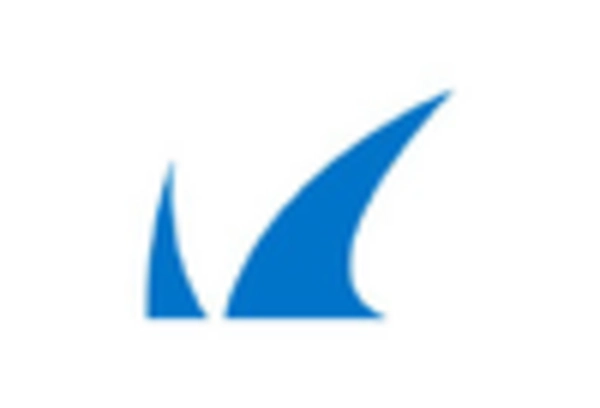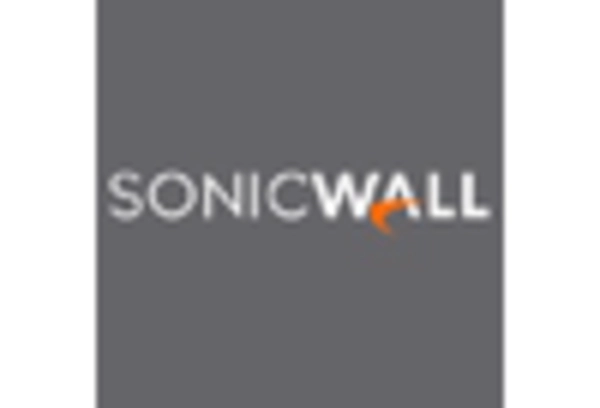Rising Cybersecurity Threats
The escalating frequency and sophistication of cyber threats in Japan is a primary driver for the next generation-firewall market. As organizations increasingly rely on digital infrastructure, the potential for data breaches and cyberattacks has surged. Reports indicate that cybercrime costs Japanese businesses approximately $1.5 billion annually, prompting a heightened focus on robust security measures. This environment compels enterprises to invest in advanced firewall solutions that can provide real-time threat detection and response capabilities. The next generation-firewall market is thus positioned to grow as companies seek to safeguard sensitive information and maintain operational integrity against evolving threats.
Increased Regulatory Scrutiny
The regulatory landscape in Japan is becoming increasingly stringent, particularly concerning data protection and cybersecurity. The Personal Information Protection Act (PIPA) mandates strict compliance measures for organizations handling personal data. Non-compliance can result in hefty fines, which may reach up to ¥100 million. This regulatory pressure drives investments in next generation-firewall solutions, as companies seek to ensure compliance and avoid penalties. The next generation-firewall market is likely to benefit from this trend, as organizations prioritize security investments to meet regulatory requirements and protect customer data.
Digital Transformation Initiatives
Japan's ongoing digital transformation across various sectors is significantly influencing the next generation-firewall market. As businesses adopt cloud computing, IoT, and other digital technologies, the need for enhanced security frameworks becomes paramount. The government has set ambitious targets for digitalization, aiming for a 30% increase in productivity by 2030. This shift necessitates the deployment of advanced security solutions, including next generation-firewalls, to protect against vulnerabilities associated with new technologies. Consequently, the market is expected to expand as organizations prioritize security in their digital strategies.
Growing Demand for Remote Work Solutions
The shift towards remote work in Japan has created a pressing need for secure network access solutions. As more employees work from home, organizations are increasingly concerned about securing remote connections and protecting sensitive data. The next generation-firewall market is responding to this demand by offering solutions that provide secure access to corporate networks, regardless of location. This trend is expected to continue, with a projected growth rate of 15% in the remote work security segment over the next five years. Companies are likely to invest in next generation-firewalls to ensure that remote work does not compromise security.
Technological Advancements in Security Solutions
The rapid evolution of technology is driving innovation within the next generation-firewall market. Advancements in artificial intelligence, machine learning, and automation are enabling firewalls to become more intelligent and adaptive. These technologies allow for enhanced threat detection and response capabilities, which are crucial in an era of sophisticated cyber threats. As organizations in Japan seek to leverage these advancements, the demand for next generation-firewalls is expected to rise. The market is likely to see a shift towards solutions that integrate these cutting-edge technologies, providing businesses with a competitive edge in cybersecurity.
















